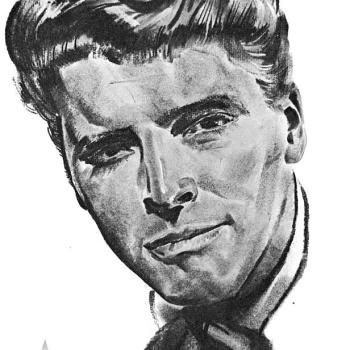All of that may be well and good—sure American-inspired religious organizations worked with economic ones to pursue certain national goals: what of it? What’s the connection between such religion and such policy? On the one hand, there exists a clear theological-historical connection. America gave birth to these brands of Protestantism; they were ascendant in this country at the same time as Rockefeller’s foundation undertook its politicking. What’s more, their religious views dovetail suspiciously well with good old-fashioned American interests: bootstrapping, the morality of wealthiness, and a general disdain for the poor as those who simply do not work hard enough. This is a connection that should be familiar to Americans—our own country’s politics saw the coincidence of certain evangelical tenets and right-leaning politics over the course of the last several decades. It’s a process still unfolding today among a weakened evangelical base that overwhelmingly supports Donald Trump. Latin American evangelicalism boasts much the same philosophy:
In contrast to liberation theology, evangelicals, Neopentecostals, and adherents of prosperity theology preach an intensely individualistic faith. Rather than challenging its adherents to fight against entrenched power structures and challenge injustice, Latin American evangelical Protestants teach that spiritual, physical, and financial salvation are accomplished individually. Liberation theology seeks to transform unjust structures; evangelical Protestantism promises to equip believers to succeed within those structures. God blesses the righteous; the poor simply haven’t believed/worked hard enough.
It isn’t difficult to see how this meritocratic theology squares with the interests of the imperialist power where it originated. What could possibly be less threatening for US hegemony in Latin America, in religious terms, than a theology that is, for all intents and purposes, a product of the American dream? Work/pray hard, be a good citizen/churchgoer, and America/God will take care of the rest. If things don’t work, well, you should have worked/prayed harder. The problem could not possibly be with the system itself. Above all, American evangelicalism is a denial of structural inequality in favor of individual responsibility – just like liberal and neoliberal economics.
Eight years after Rockefeller’s visit, in 1977, the pioneering prosperity theology-based Universal Church of the Kingdom of God (UCKG) was founded in Brazil by Edir Macedo, who had recently had a Neopentecostal conversion experience. In addition to preaching a particularly blatant version of prosperity theology that tied financial blessings from God to donations made to the church, Macedo also lauded the philosophies of Nelson’s grandfather John D. Rockefeller. The church’s first service was held on July 9 that year, in a suburb of Rio de Janeiro to a congregation of 200. Forty years later its membership in Brazil stands at at least 2 million (and perhaps as high as 7 million), and the church has founded congregations around the world, particularly in Africa, Latin America, and North America. And the UCKG is only one of dozens, if not hundreds, of similar groups that have sprung up in Brazil since the 1970s, usually in poorer regions and neighborhoods, and preaching, nearly without fail, an extremely conservative social message that focuses on respecting church and state authority, glorifies the individual over the collective, and emphasizes the accumulation of wealth as a sign of God’s favour. (“Thy Will Be Done: Brasil’s Holy War”)
This specific brand of American evangelicalism, popularized in the mid-20th century by a variety of famed televangelists, is well known for its commitment to ideals it considers as American as apple pie: hard work, grit, and the economic theories of the Reagan years. Its spread presaged the same things wherever it went during the Cold War. One need only ask Scott Pruitt, the head of the EPA, who loves to talk about a trip he took to an evangelical church in Romania as a young man; one need only ask Scott Pruit, who backs his environmental policies with Biblical quotations. Evangelicalism—always an import to places like Brazil, Bolivia, Bulgaria, and Romania—has played a key role in exporting a worldview amicable to American interests. There may be more to evangelicalism than realpolitik, but the politics it bears whither it goes are loud and clear.












